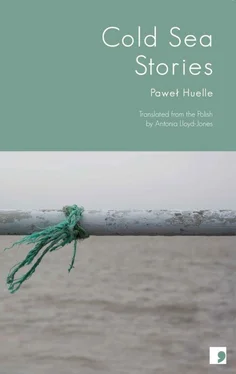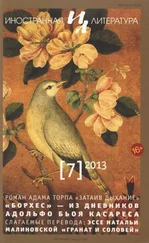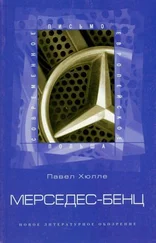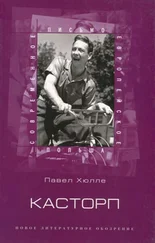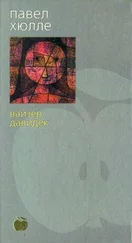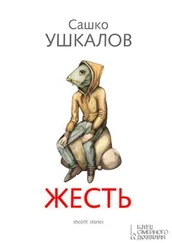He rushed into the room, pale and shaking, but refused to say a word, or to read a single one of the patiently elaborated sentences which she had just finished writing; perhaps he suspected she had a hidden aim, to avoid giving him proper warning; perhaps he thought that the someone whom he could not see in the chapel, terrifying and dreadful, was acting in league with her and, throughout the whole of his time here, in this small, strange, abandoned village, had been covertly spying on him, giving her orders; or perhaps he wasn’t thinking anything of the kind, because he could still hear the rumble of the falling books, terrible thumps, louder and louder, sending clouds of silvery dust into the air and ringing in his ears like the breath of Abbadon, carrying the wind of destruction; perhaps he didn’t want to tell her all this because he would have to raise his voice, he would have to shout at her, and so, once he had calmed down and swallowed a mouthful of water from the jug, all he said was: ‘Wake me up early tomorrow, Willman can’t bear it if I’m late at the canal.’ And then, on the stairs by now, he added not his usual ‘Good night’, but ‘Nevertheless, good night .’
And yet she was happy. In the end he had stayed here, not at the van Dorns’. Now as she lay in bed, she would be able to hear him moving his chair, walking about the room, playing the violin, taking off his shoes, sometimes laughing to himself, opening or closing the window, or yawning lengthily – perhaps at deliberately high volume – and then lying down to sleep. She could wake him before dawn, watch him eating the same old fritters for breakfast, putting on his shoes and going off down the narrow track towards the three oak trees. She was happy, though there were no bustling noises coming from upstairs now, and the violin was down here.
Meanwhile, upstairs, in Jakub’s dreams, his father had suddenly appeared. He sat down on the edge of the bed and whispered into his ear: ‘When you went to join the orchestra and abandoned your home and your tradition, I told you it was bad, but as for this – this is sheer catastrophe!’ He pointed down at the floor, and asked: ‘What is the meaning of all this?’
But of course he wouldn’t listen to a word of what his son had to say to him. From under his black coat he took out his Book and slowly leafed through it, hesitating, frowning and muttering. Then he removed some individual letters from the pages, raised them in his fingers like thin flakes of soot and carefully blew on them; without changing shape they slowly glided across the room and landed on Jakub’s face, on his lips, his brow and his eyelids.
This scene absorbed him so fully that he lost sight of the border between sleep and waking, and failed to notice the woman’s presence at all. Meanwhile she laid the violin case next to the bed, leaned over Jakub, and wherever a letter appeared, she placed a kiss. The symbols vanished like snowflakes at the touch of her lips. Jakub woke up. Besides the absence of his father, and besides her so unexpected presence in his room, he had an even bigger surprise – she was whispering tender words full of emotion to him. She could speak. When she noticed that he wasn’t asleep any more, and at once tried to leave, he stopped her with a firm, decisive gesture.
A couple of hours later when, sated by love, she woke up at Jakub’s side and gently, without interrupting his sleep, touched his face with her fingertips, she heard the distant, rising rumble of the sea. Along with the first storm, the summer was relentlessly approaching its end. The dozen or fewer warm days they still had before them could change nothing here, although everything had changed between them. Less than an hour later Jakub came back from the canal.
‘Willman,’ he said, his voice faltering, ‘loaded up the supplies and sailed away last night.’
‘Did he leave a stupid little poem?’ she asked.
V
The day they saw the plane was no different from the ones before it. The frost held just as firmly as it had all winter, for almost four months now. Jakub came out of the woodshed and looked up to follow the flight of the reconnaissance biplane: it flew in from the east, turned a circle above the dunes, flashed over the village and headed west, towards the mouth of the river. She spotted it too: there was no black cross on its wing (like the one on the officer’s car, which instantly came to mind), but a red star instead.
‘What does it mean for us?’ she asked at supper.
Jakub thought hard over his watered-down soup.
‘I think it means we can kill a hen and make chicken stock,’ he said, ‘but not today, maybe in a couple of days’ time.’
From then on the nights became a torment. Jakub could understand her anxiety: now, more than strangers, she feared the return of her own people, in which she believed so strongly and firmly that even his tales of what he had met with there, in the camp and on the transports, his casual hints, which he had avoided earlier, were incapable of undermining this dreadful hope. There were moments when he could feel the fear and antipathy rising in her. She would stifle it with outbursts of passion, ever more ardent and insistent, but Jakub knew that like this she was only driving away the thought of the moment when she would stand before the entire community, merely in order to be judged and expelled.
‘You can’t keep on thinking about it!’ he finally erupted. ‘Sin is a relative concept.’
In short, matter-of-fact sentences she told him about Hanna and Ludwig. She had seen her brother-in-law that day, by the officer’s car. She had seen him fire a shot straight into Harmensoon’s temple. A couple of months later, when she saw the old man in the chapel, with the same, open wound, with the same blood-caked lock of grey hair, she was sure she had lost her mind, but Willman, whom she had quickly fetched, had seen the same thing. Harmensoon was looking for something in the books, but failing to find it, he had flown into a rage and screamed, ‘A mistake has been made!’ then vanished, only to appear in the chapel again a fortnight later, light another candle and throw the books to the floor again. She was afraid that one day he would appear in her house, so she had begged Willman to do it – yes, he had finally gone to the cemetery to dig up the grave, but there was nothing wrong: there lay the coffin, undisturbed, and there was the puffy, already decomposing corpse, the same one they had laid there together the day after the lorries drove away, so they couldn’t understand why he kept returning, what he was searching for in the books, or what ‘mistake’ he was on about. But later, with cruel clarity she had realised: what Harmensoon – or rather the thing that appeared in the shape of Harmensoon – meant was sin: common human sin, which could never be eradicated, not even in places like this one, not even with laws such as they had had here for centuries, and if that were the case, then the whole world was steeped in it, there was no hope left, and what it said in the Book about the coming of the Lord, heralded by signs and oppression, might simply never happen, for how could it occur, how was it meant to come about, if the unjust could no longer be distinguished from the just?
He listened to all this with bated breath. The rage that flashed in her every word poured not just onto her or him, but onto the entire world as well.
‘In a couple of weeks,’ he said, ‘when the Russians drive away the Germans, we can get out of here, if you want to.’
‘Where will we go?’ she asked. ‘Is there a place for us?’
‘The world is enormous,’ he replied. ‘Bigger than we think.’
A few days later they were woken at night by a deep, incessant boom. The ice was cracking on the river. And further off, beyond the dunes and the crests of the forest, heavy artillery was grumbling on the plain. That morning, with the rain came the thaw. The snow was damp and stuck to Jakub’s boots in heavy wedges that immediately matted together into frozen clumps. Every few steps he stopped to prise it off his boot soles with a pointed stick. Each time he did, his bundle fell onto the wet snow, and he muttered a curse, picked it up, threw it on his back again and continued on his way. And every time it happened he looked behind him, as if he couldn’t really believe that his requests, pleas and arguments were just the sound of empty words to her. As if he still had a hope that she would change her mind, and that he would suddenly see her on the road, wading through the dreadfully slippery slush and heading after him.
Читать дальше
